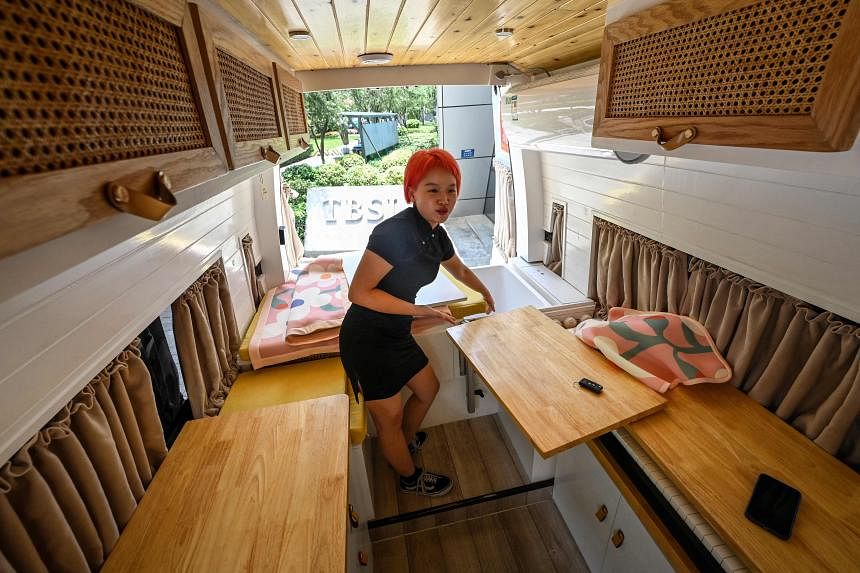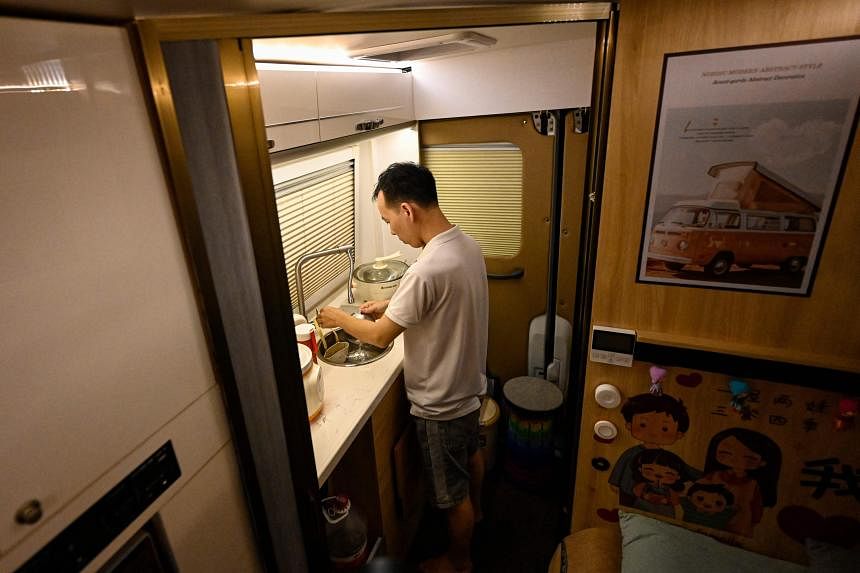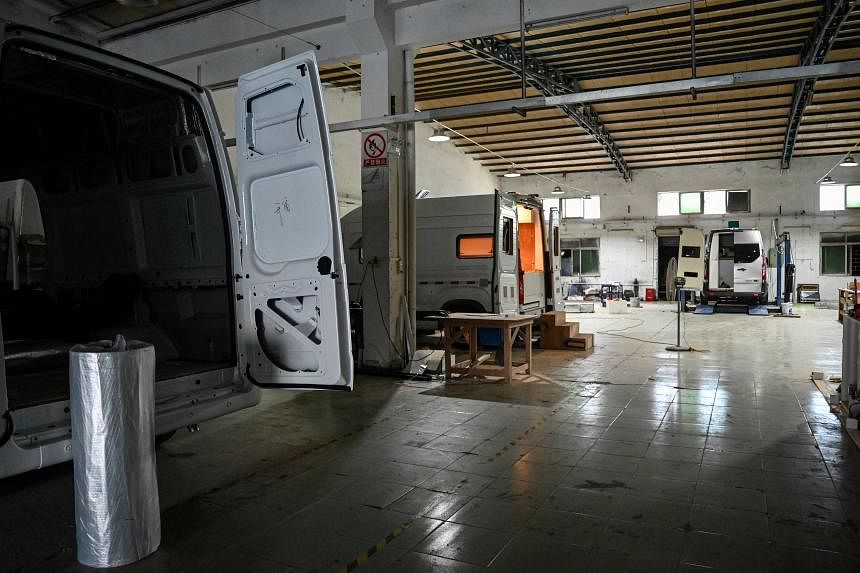SHENZHEN, China – With its open kitchen, bathtub and electric piano, the home of Chinese e-commerce worker Twiggy He is the envy of her colleagues – even if it is located in the office carpark.
Ms He enjoys a commute of two minutes from bed to desk with the refitted cheery yellow van, named Yolo (you only live once), and the recreation vehicle (RV) has saved her thousands of yuan a month in tech hub Shenzhen, one of China’s most expensive cities.
The 28-year-old is among a growing number of young people in major cities who have sought an alternative arrangement amid sky-high real estate prices.
“I find living in an RV to be very freeing,” Ms He, who moved in four months ago, told AFP.
“It doesn’t give me any anxiety about buying a house or make me feel I need to settle down... I may move to a new city in a few years.”
Her monthly expenses have plummeted from when she rented an apartment, from around 2,500 yuan (S$463) a month to 600 yuan a month. Parking only costs her 20 yuan a day.
She does have to rely on public toilets, though.
Mr Zhang Xi and his wife started living in an RV, or camper van, in May 2022 and soon opened a van renovation workshop.
Cost was the main push factor in making the shift to an RV, he said.
“Shenzhen’s property prices are beyond the reach of ordinary folks like me,” said Mr Zhang.
A recent survey by a property research institute suggested Shenzhen’s rent-to-income ratio has reached up to 49 per cent, and buying is even worse.
On average, second-hand flats fetch 65,000 yuan per sq m – nearly nine times the city’s average monthly salary in the private sector.
Mr Zhang and his wife plan to live in the van while they do not have children, saving around 3,000 yuan a month in rent and commuting.
They hope to put that money towards a down payment for a flat in a lower-tier city.
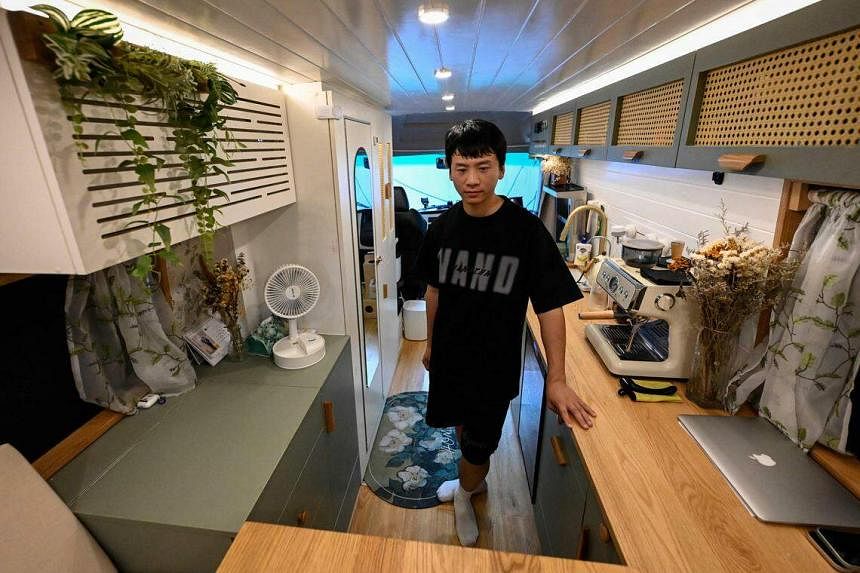
The walls of office worker Li Conghui’s homey white van are lined with bunk beds, and drawings and photographs of his children, who live with their mother in a different city.
His wider family disapprove of his unconventional living situation.
“My wife is the only one who isn’t against it,” Mr Li said. “But others don’t understand where I’m coming from; they think it’s too unusual.”
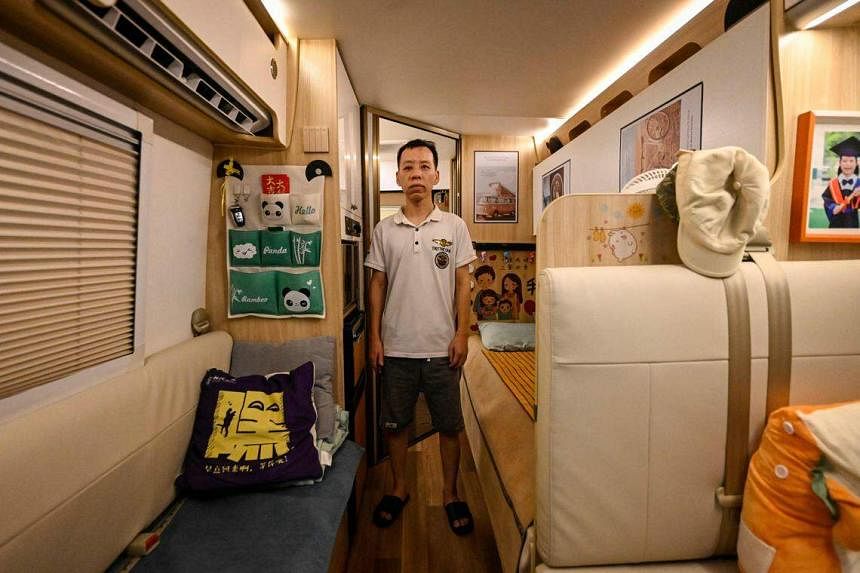
Mr Li has worked in Shenzhen for over a decade and “still couldn’t get a sense of belonging” in the city.
“When I was living in a rented room, I didn’t feel at home each time I went back,” he said. “But the RV is different. When I am inside this private space, I feel a sense of belonging.”
Mr Zhang agreed.
“It feels just like a home to us,” he said.
“It’s truly a place that belongs to us in Shenzhen.” AFP
